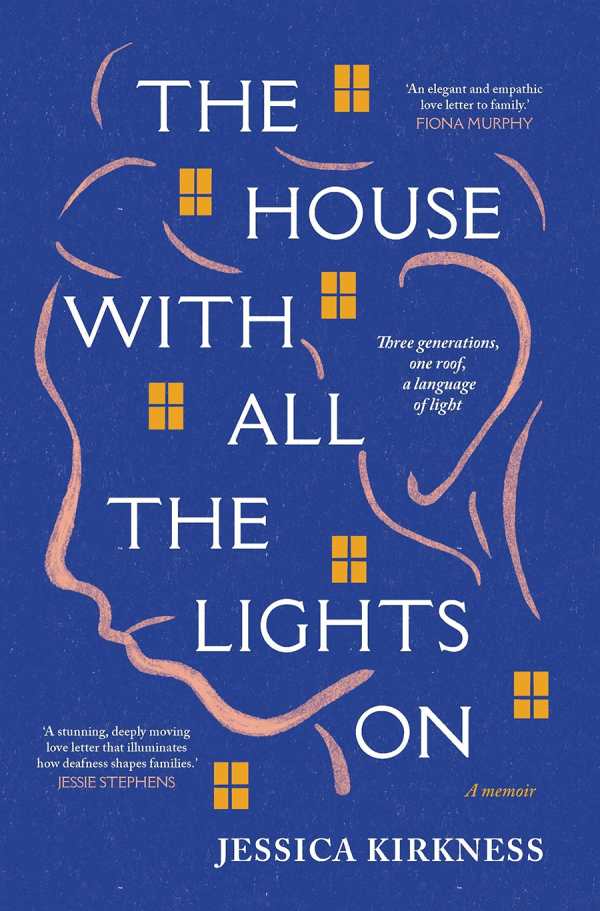The House with All the Lights On
Elegiac in tone, Jessica Kirkness’s The House with All the Lights On is a touching family memoir in which language and technology enable connections with deaf grandparents.
Kirkness grew up next door to her grandparents, immigrants who were deaf from childhood. It fell to Kirkness to convey her grandfather’s fatal prognosis to him as his Auslan (Australian sign language) interpreter. Losing this bond and inheriting his archives prompted her to learn more about deaf upbringing and community involvement. She also attained a PhD in Deaf and Disability Studies; for her, research became personal.
That intimate connection to the subject results in warmth throughout, even when the book is dealing with facts. It imparts a clear sense of the range of international deaf education strategies over time. Some aspects have been slow to change: on a visit to her grandmother’s deaf school in England, Kirkness discovered it still operates a contentious oralism policy: teaching is only via spoken English; students must rely on hearing aids and lip-reading.
In addition to expressing disappointment over enduring oral bias, the book addresses the controversy surrounding cochlear implants, an Australian invention. Deafness is introduced as an identity as well as a disability; some view implants as an existential threat. For others, the loss of one sense seems to enhance others, a phenomenon known as “Deaf Gain.” Toggling between science, statistics, and family stories illuminates how such contentious subjects always have a personal stake.
Through the example of Kirkness’s grandparents, other technologies are posited as a lifeline, including closed captions, large-screen televisions, and social media. There is equal weight given to technology and the arts. Kirkness learned that deaf people can feel music, and her grandfather adored movies.
The House with All the Lights On is a poignant memoir about disabilities, family relationships, and a “dance between pride and shame.”
Reviewed by
Rebecca Foster
Disclosure: This article is not an endorsement, but a review. The publisher of this book provided free copies of the book to have their book reviewed by a professional reviewer. No fee was paid by the publisher for this review. Foreword Reviews only recommends books that we love. Foreword Magazine, Inc. is disclosing this in accordance with the Federal Trade Commission’s 16 CFR, Part 255.

